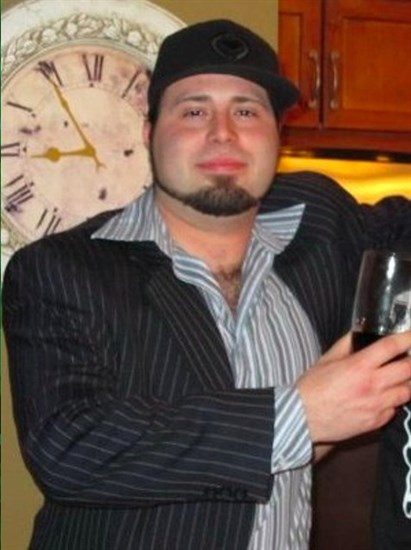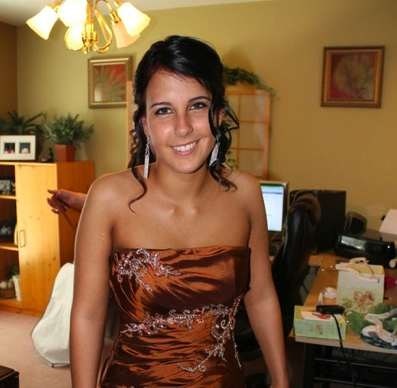
Matthew Foerster faces a first degree murder charge in connection with the death of Taylor Van Diest.
Image Credit: BC RCMP
June 10, 2016 - 2:50 PM
VERNON - Convicted killer Matthew Foerster is appealing his first degree murder conviction in the gruesome death of Armstrong teen Taylor Van Diest on grounds that legal mistakes were made in his trial.
The appeal hearing, which comes two years after Foerster was found guilty, was held in Vancouver but live-streamed to the courthouse in Vernon where Van Diest’s family watched the proceedings.
Foerster’s lawyers, Roger Thirkell and Ken Beatch, went over a series of technicalities they believe constitute the need for a new trial.
The fact that Foerster killed Van Diest is not in dispute, but like his lawyer did during the trial, defence counsel argued there is weak evidence to suggest he did so while sexually assaulting her, or attempting to do so. To reach a verdict of first degree murder, the jury had to conclude he killed her while committing a sexual assault, or trying to.
Foerster admitted in a taped police interview that he was looking for sex and that if Van Diest hadn’t fought back, she would still be alive.
Defence counsel argued Justice Peter Rogers erred by not properly instructing the jury on whether they could consider Foerster’s post-offence conduct — the things he did after the murder, like taking the murder weapons (a shoelace and flashlight) from the scene and throwing them in a dumpster in Vernon — in reaching a verdict. The defence claims this is important because the Crown used it to establish intent.
Defence lawyers also took issue with the admission of a text message sent from Van Diest’s phone to her boyfriend saying she was ‘being crepped.’ Her boyfriend testified that he understood the text to mean Van Diest was ’being creeped’ or being checked out in a sexual way. Defence argued the message was an expression of Van Diest’s state of mind, and not necessarily what was occurring.
Foerster is also arguing that his right to silence was used against him. To disprove Foerster's 'intoxication defence' during trial, Crown counsel pointed to the fact that Foerster never mentioned alcohol as a factor in what happened during police interviews.

Taylor Van Diest
Image Credit: SOURCE/ Taylor Van Diest Facebook page
“As a matter of law, Mr. Foerster had no duty to answer any police questions, he had the right to say nothing,” Beatch said.
They also argued that when Foerster pushed Van Diest to the ground, he might not have done so for the purpose of sexually assaulting her.
Crown counsel Margaret Mereigh rebutted the arguments, insisting Foerster was clearly there to sexually assault Van Diest and that none of the technicalities brought forward by defence would have made a difference in the jury’s verdict.
She said there was strong evidence Foerster intended to sexually assault Van Diest, including how he followed the young woman down a secluded pathway as night fell.
“The greatest and most important evidence comes from the appellant himself from his police statement,” Mereigh said.
In the statement, Foerster agrees he went to Armstrong for sex, followed Van Diest onto the railroad tracks, pushed her down, told her to be quiet, and proceeded to strangle her with a shoelace and strike her on the head with a flashlight. She was left fatally injured.
As Mereigh described Van Diest’s brutal injuries, some family members excused themselves from the courtroom.
Mereigh pointed out the Crown lawyers during trial did not rely on Foerster’s post-offence conduct in proving his intent, they relied on the murder weapons and his police statements. She said Foerster’s statements to police were voluntary and made after he was read his Charter right and warned, and argued his right to silence was not used against him.
She said the trial judge properly explained to the jury how they could reach a verdict of first degree murder and said the defence’s scrutiny was but a “minute examination of the jury instructions in isolation.”
The panel of three judges reserved their decision following the roughly three-hour hearing.
It’s expected they will deliver a decision in the next few months.
Foerster is currently serving a life sentence with no chance of parole for 25 years.
To contact a reporter for this story, email Charlotte Helston or call 250-309-5230 or email the editor. You can also submit photos, videos or news tips to the newsroom and be entered to win a monthly prize draw.
We welcome your comments and opinions on our stories but play nice. We won't censor or delete comments unless they contain off-topic statements or links, unnecessary vulgarity, false facts, spam or obviously fake profiles. If you have any concerns about what you see in comments, email the editor in the link above.
News from © iNFOnews, 2016